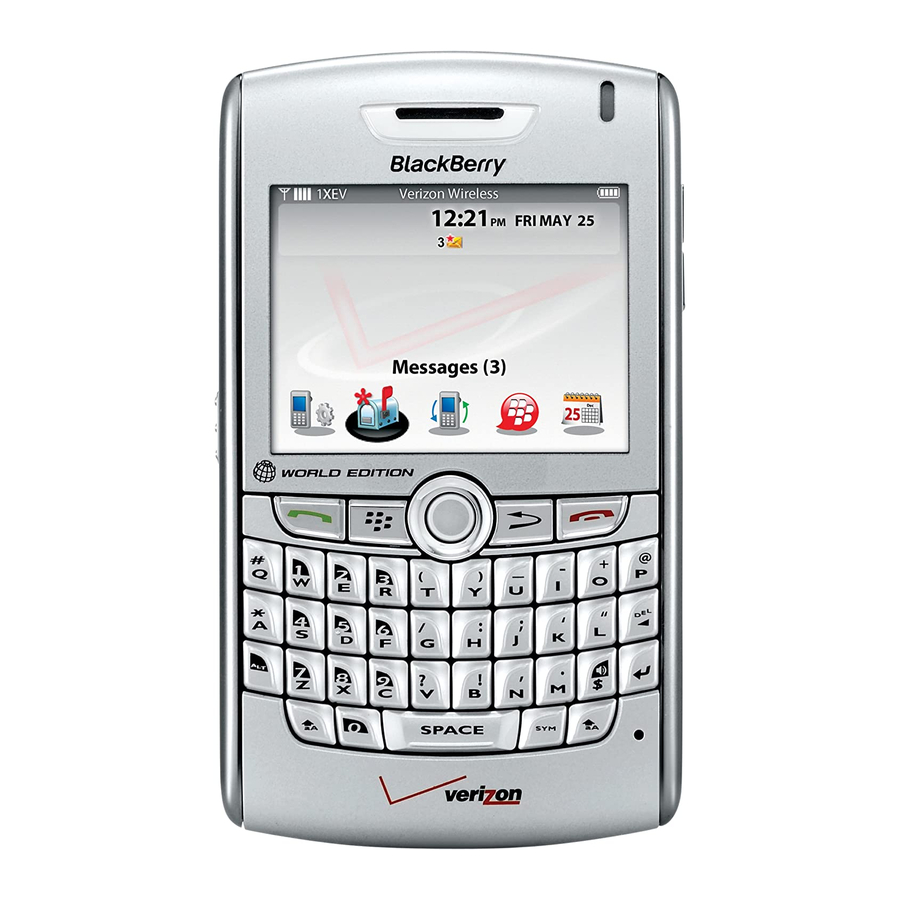Blackberry 8830 Veiligheid en productinformatie - Pagina 20
Blader online of download pdf Veiligheid en productinformatie voor {categorie_naam} Blackberry 8830. Blackberry 8830 30 pagina's. Blackberry 8830 mobile phone getting started guide
Ook voor Blackberry 8830: Veiligheid en productinformatie (32 pagina's), Tips en trucs (4 pagina's), Aan de slag handleiding (48 pagina's), Snelstarthandleiding (2 pagina's), Aan de slag handleiding (16 pagina's), Ondersteuningshandleiding (9 pagina's)

